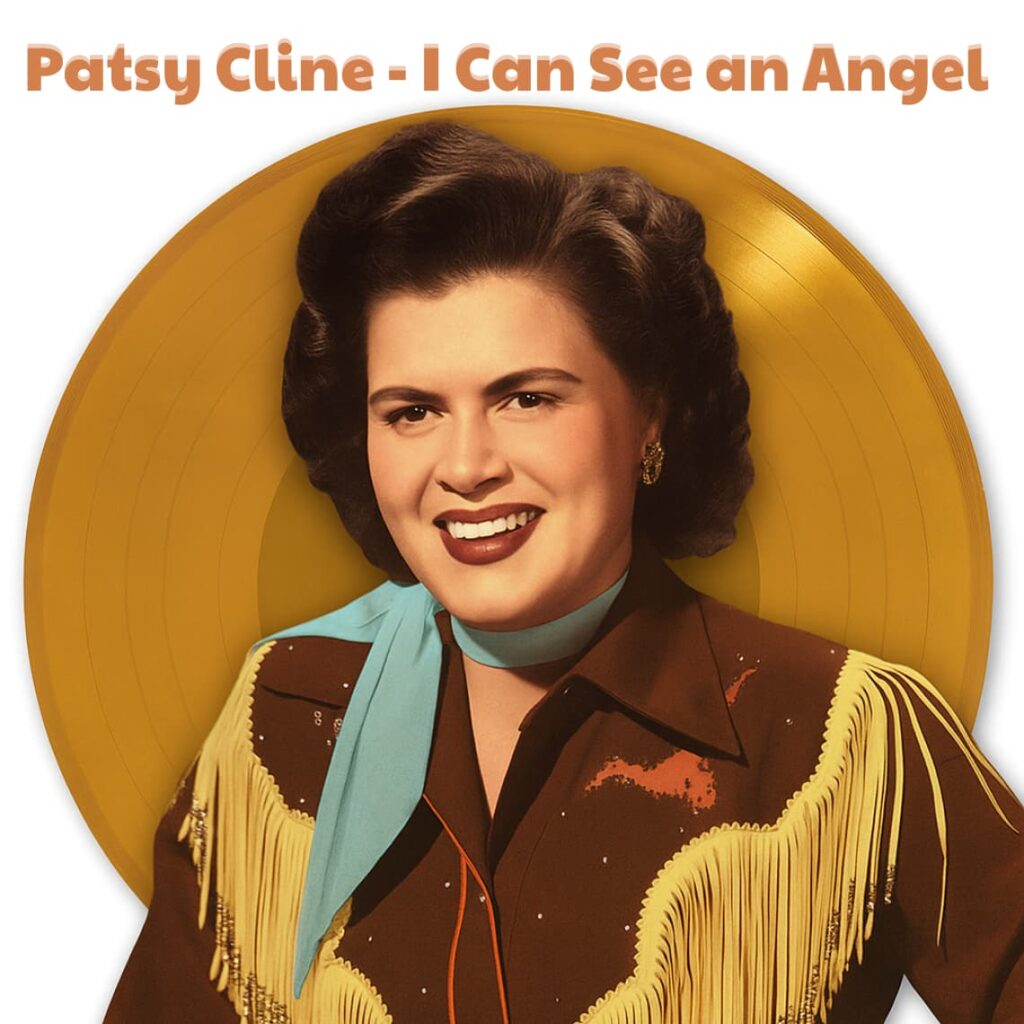
An Angelic Glimpse of Hope and Solitude
It’s a curious thing, how some songs become more than just music; they become time capsules, holding not just melodies but the very air and sentiment of the era they were born into. Such is the case with “I Can See an Angel,” a poignant and often overlooked gem from the inimitable Patsy Cline. Released in 1958, this song holds a special, if somewhat understated, place in her storied discography. It was part of her debut album, Patsy Cline, and it managed to chart on the Billboard Country & Western charts, reaching the respectable position of number 13. While not as explosively popular as her later, career-defining hits like “Crazy” or “Walkin’ After Midnight,” its quiet success laid crucial groundwork, proving that Patsy was a force to be reckoned with, capable of delivering a deep and heartfelt emotional core that resonated with audiences.
The story behind this song is as fascinating as it is deeply personal. Penned by the talented Don Gibson, a man known for his incredible knack for writing songs of both profound heartbreak and quiet hope, “I Can See an Angel” was a perfect fit for Patsy’s unique vocal style. Gibson, who also wrote the country classic “I Can’t Stop Loving You,” had a way of tapping into universal feelings of loneliness and seeking solace. For Patsy, a woman who had already weathered her share of personal and professional storms, the song’s message of finding a beacon of hope amidst solitude must have struck a chord. She was a young woman, balancing the demands of a burgeoning career with the realities of life, and this song speaks directly to that vulnerability. The recording itself has a sort of hushed reverence to it, with Patsy’s voice, already a powerful instrument, imbued with a gentle, almost prayerful quality. You can hear the sincerity in every note, a testament to her ability to inhabit a song completely, to make its story her own.
At its core, “I Can See an Angel” is a song about finding a glimmer of light in the darkest of times. The lyrics speak of a narrator who is alone, likely in a time of great sorrow or introspection, yet finds comfort in a vision—an angel. This isn’t necessarily a religious song in the traditional sense, but rather a spiritual one. The angel can be interpreted in many ways: as a literal celestial being, a metaphorical representation of a loved one’s memory, or simply the manifestation of an inner strength that emerges when one is pushed to their limit. It’s a testament to the power of hope, the idea that even when we feel utterly forsaken, there is a guiding presence, a source of solace that watches over us. For an older generation who lived through times of great change and uncertainty, this message would have been a powerful one. It speaks to the human need for connection and reassurance, a quiet promise that we are never truly alone.
Listening to it today, decades later, the song feels like a whisper from the past, a gentle reminder of a simpler time, yet its message remains timeless. It evokes a feeling of quiet contemplation, perhaps of sitting alone on a porch swing on a warm summer evening, watching the fireflies and reflecting on the journey of life. Patsy Cline’s voice, with its inimitable blend of power and tenderness, guides us through this emotional landscape. It’s a song that doesn’t demand attention with flashy instrumentation or a bombastic chorus; instead, it draws you in with its sincerity, its raw and honest emotion. It’s a perfect example of why Patsy Cline wasn’t just a singer, but a storyteller, a woman who could convey the deepest human truths with a single, perfectly held note. Her legacy is built on songs like this, the ones that perhaps didn’t make the biggest splash at first, but have endured as cherished testaments to her incredible talent and emotional depth, forever etched in the hearts of those who truly listen.